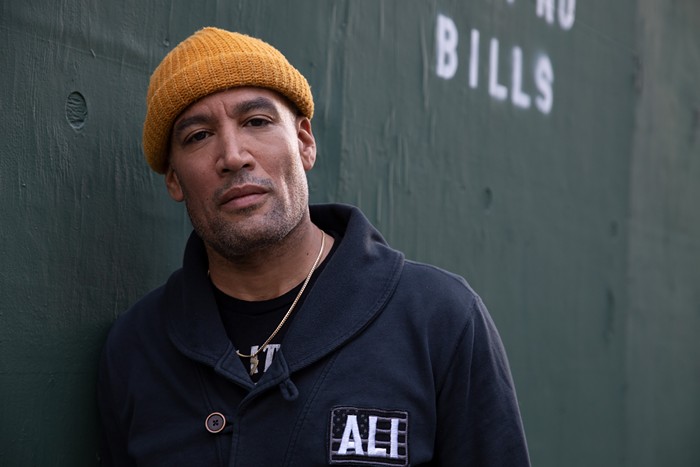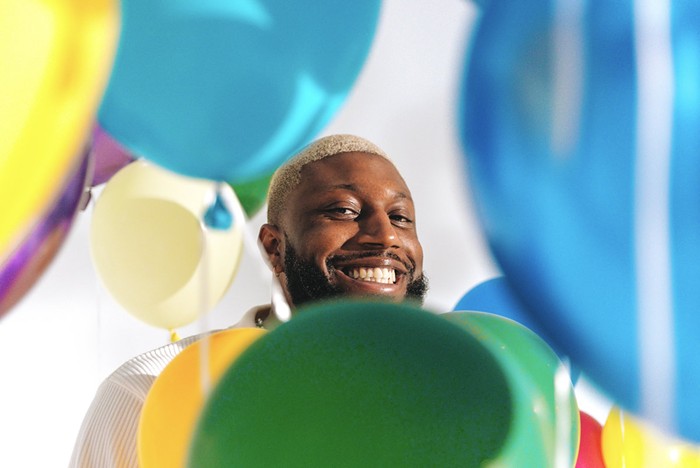
- PRINCE "Parties weren't meant to last," but this one ended too soon.
EIGHT YEARS AGO, I decided to start researching the life of Prince Rogers Nelson. He'd been a guiding light a decade before, when I'd moved away from the bro-ish small town where I grew up, and served as an inspiration while I explored my sexuality and gender identity. I'd been progressively getting deeper into his catalog as the years went by, and in my mind I planned simply to follow out this long-held fascination, make a little zine about what I learned along the way, and move on. But this seemingly fun project soon became all-consuming and only questionably fun. Soon all the books on my bedside table were Prince biographies, and whole weeks of my life went by where the only music I put on was written or produced by Prince. In short: I quickly found that Prince required dedication.
Depending on how you count it, Prince released at least 39 full-length albums in his lifetime—many of which were double and triple albums. He had upward of a couple of dozen (again, depending on how you count it) protégé projects. And he had the Vault: a legendary stockpile of unreleased (but often bootlegged) material enclosed in an actual bank vault in the basement of his Paisley Park home. The hits barely scratched the surface of his catalog. Some of his greatest songs were B-sides (“Erotic City,” “She's Always in My Hair,” “I Luv U in Me”) and album tracks (“Lady Cab Driver,” “Paisley Park,” “Adore”). His best songs of the ’90s were hidden on sprawling, self-indulgent albums. His best album of the new millennium wasn't one of the hyped-up commercial albums, but a fan club-only album called The Chocolate Invasion. Finding these gems took slogging through an incredibly hit-and-miss catalog where discount-bin hair metal and smooth jazz were fused together far too often.
While not all (or even most) of his albums were great, each album was, as Hilton Als wrote, “reflective of the current permutation of his musical mind.” This is why we as fans forgave Prince for all his musical missteps: The misses were all sincere attempts to capture the place he was at as an artist. He knew how to make a hit and presumably could have done so at any moment, but instead he followed the muse until it led to something he'd never done before. Prince summed this up best in a 1985 interview with Rolling Stone, when he said, “If I do something that I think belongs to someone else or sounds like someone else, I do something else."
This tendency to go against expectations extended to the man himself. He was dramatic, without question, but often in completely unpredictable and innovative ways. He declared himself a slave to his record company. He changed his name to an unpronounceable symbol of androgyny. He went on live TV in assless pants. He proselytized door-to-door for the Jehovah's Witnesses. He announced he was celibate. He sued a mom over a barely watched YouTube video. He declared the internet over. He (while still making a career as a gender-bending pop star) made vague, Biblically motivated homophobic comments. He claimed to no longer talk to old people. It was drama, but goddamn was it weird drama. He was baffling, he was frustratingly hilarious, he was not laidback. He was a conflicted, complex human who created both wonderful and awful things, and was capable of both great acts of kindness and cold-hearted dick moves.
My research of this complicated figure culminated in a much larger than I ever could have imagined, self-published zine called The Prince Zine. The first edition came out in 2011, and in 2014 I released a revised and updated second edition. It wasn't an overnight sensation by any means, but over the years it seems to have made its way into people's hands, because since writing The Prince Zine I've had dozens of people—most of them strangers—confide in me about the effect Prince had on their lives. In the last five years, people have told me that Prince inspired them to explore their own sexuality, question their gender identity, confront racism, become a musician, go into fashion, follow their dreams, become a dancer, get involved with social justice causes, and come out to their parents. I've found myself on the verge of tears more times than I can count as strangers, friends, and acquaintances told me that the existence of Prince was the spark that changed their lives.
When Prince died we didn’t just lose a pop star, or one of the most prolific musicians in the history of recorded music, or one of the most compelling live performers of the last 40 years—we lost a force whose very existence challenged people to seek out their better selves. He wasn't perfect, and the philosophy he championed was muddled and full of contradictions. But his life managed to make the world more interesting and, for a lot of people, a better place. And as we look back on his life and work—a life that often seemed governed by multiple selves—this might be the part that matters most.



















